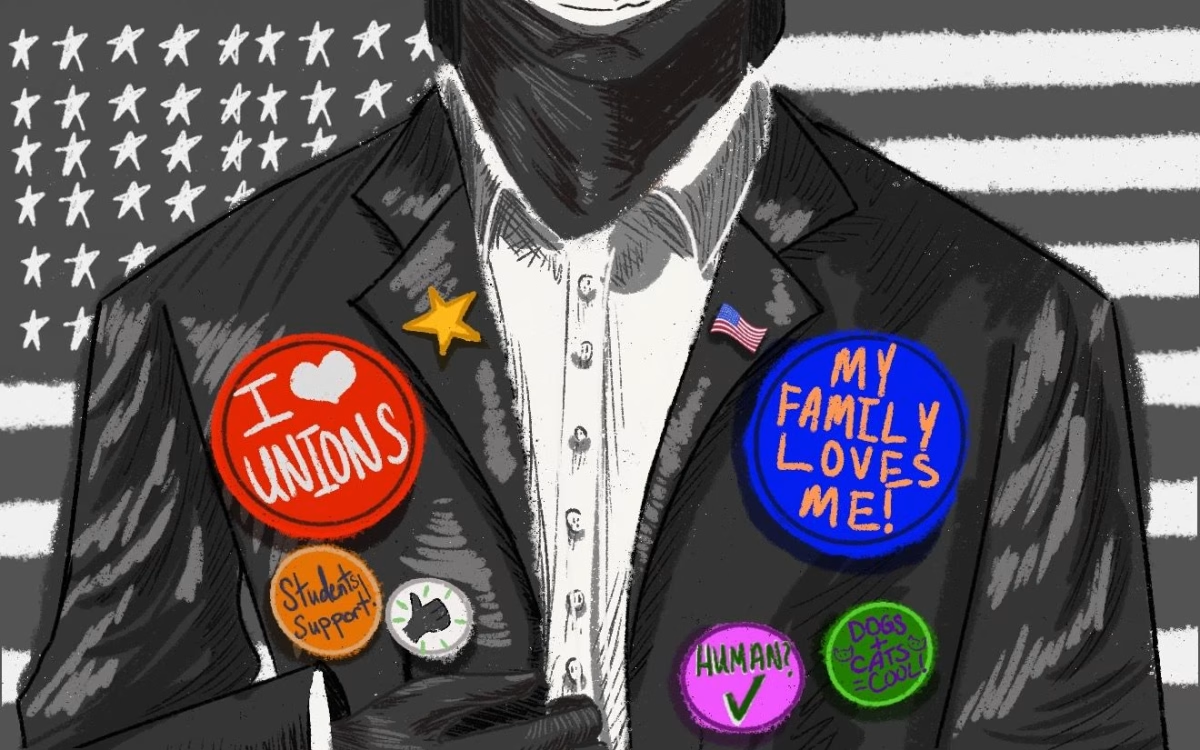The first election I remember was in sixth grade. It was 2016, Hillary Clinton against Donald Trump. On an early October morning, in my first-period social studies class, I realized the reality of all elections: they’re stressful.
We were asked to take an online poll and vote for who we wanted to win the upcoming election. I sat at my desk quietly, conflicted.
I spent half my time with my parents and half with my grandparents. In one home, I was confronted daily with InfoWars in the background of my dinner and a “Hillary for prison” bobblehead staring at me from the kitchen window-ledge. In the other, I overheard evening news tearing down Trump and his policies from my room as I tried to fall asleep, all while my grandpa discussed his agreement from his seat on the couch.
As I stared quietly at my computer screen, I had two options, and I realized I really knew nothing about either of them except that half my immediate family wanted one in jail and vice versa. With both villainized, I had no idea if there was a point in choosing anyone.
Little did I know Trump would still be on my computer screen eight years later, just with a new opponent: current Vice President Kamala Harris.
And now, not just members of the public want him in jail. Wherever you stand regarding candidates, it is indisputable that Trump has had a messy few months legally, which makes this election particularly interesting.
Harris also is not facing all praise. As younger generations continue the fight to end ties with Israel concerning the war in Gaza, her response and plan are extremely elevated, and as of now, young voters are not seeing the urgency they want.
In an election of this nature, there is a battle like never before for our two main candidates to save face. There is also a need to examine their tactics that are already working on people, and they know this.
“He’s a chaos agent, right? That’s what he does. He’s a fearmonger. He’s a demagogue. He does those things really well, they’ve worked for him,” Ben Epstein, a DePaul political science professor, said when discussing the tactics utilized by Trump. “He has been really effective at solidifying a base that views him, I mean, as the absolute pinnacle of what they look for. … He has a really solid floor. He has a really solid ceiling.”
Harris, on the other hand, has a different angle with the Democratic Party. “They’re trying to paint an image of a very positive, hopeful, future-oriented campaign,” Epstein said. “I think that is very refreshing for a lot of people, but it’s very clear that fear, anger, and to a lesser extent, sadness, are really motivating.”
And it’s not just the experts that know this.
“Emotional appeal, more often than not, is more persuasive than logical appeal,” said Gael Delgadillo, an undecided sophomore at DePaul with interests in political science. “Hillary Clinton, when she was facing Trump, was all policy and that she was not emotionally appealing at all … and she did not humanize herself at all … and she lost.”
It’s clear playing to emotions in any party is necessary to raise the reactions one needs, whether that be fear, hope, anger or a combination of them all.
This has become more apparent with the progression of media in politics. From the first televised debate, we saw what it meant to people, how it shifted opinions when seeing how people appeared as they spoke, their body language, and the aspects of being truly human, because it’s easier to judge when you know who’s being dealt with. This is also why so many undecided voters need events like the debate to make final decisions.
I think with the innovativeness of today’s media, there is no way for a candidate to not showcase themself to the public, which is a good thing. There is so much you can tell about a person or a leader based on what they say and how they say it, whether it is collected or unhinged.
After eight years of media, debates and political ups and downs, I know the people on my screen. Whether it’s them or the tactics they have created to captivate me, I can work with it.
Above all, I know when I look at my ballot this November, I won’t be completely hopeless about who I’m choosing.
Related Stories:
- Photo Gallery: Dems take Chicago for energetic conference
- ‘We’re not going back’: Vice President Harris becomes Democratic nominee Harris
- Political figures urge Democrats and young voters to “stand up for their values”
delivered to your inbox every Monday.
Support Student Journalism!
The DePaulia is DePaul University’s award-winning, editorially independent student newspaper. Since 1923, student journalists have produced high-quality, on-the-ground reporting that informs our campus and city.
We rely on reader support to keep doing what we do. Donations are tax deductible through DePaul's giving page.



